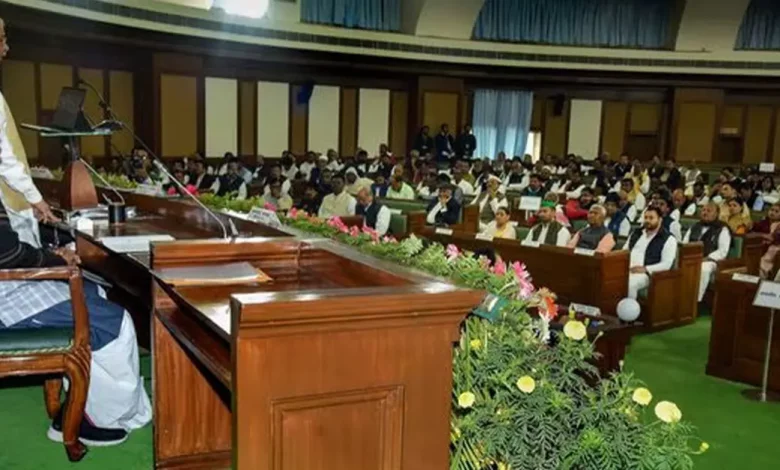Daily Current Affairs for UPSC
Bihar Legislative Assembly conducted a Floor Test
Syllabus: Polity[GS Paper-2]

Context: The Bihar Legislative Assembly conducted a floor test on February 12 to determine the leadership amidst the ongoing political transition in the state. Nitish Kumar was re-elected as the chief minister of Bihar.
Floor Test:
- The term “Floor test” refers to the requirement for a Chief Minister to demonstrate the support of the majority of legislators in the House.
- If there is uncertainty about the Chief Minister’s majority, a vote of confidence may be called.
- In cases where no clear majority exists and multiple individuals are vying for government formation, the Governor may convene a special session to determine who has the majority.
- Only the votes of present legislators are considered in calculating the majority. The Governor has the power to summon, dissolve, and prorogue the state legislative assembly according to Article 174 of the Constitution.
- However, Article 174(2)(b) allows the Governor to dissolve the Assembly based on the cabinet’s advice, but discretion is permitted in cases of doubt about the Chief Minister’s majority.
- Article 175(2) enables the Governor to summon the House and conduct a floor test to ascertain the government’s numerical strength.
- However, Article 163 restricts these actions as the Governor must act on the aid and advice of the Council of Ministers, led by the Chief Minister.
Governor has the authority to exercise discretion:
- During the Assembly session, the Speaker has the authority to initiate a floor test.
- However, during recess, the Governor has residual powers to call for a floor test according to Article 163.
- The Governor’s discretionary powers, as mentioned in Article 163(1), are restricted to specific situations defined by the Constitution where independent decision-making is required.
- The Governor can exercise discretionary power under Article 174 when the Chief Minister no longer has support and the majority is uncertain.
Provisions andJudgements related to Floor Testing:
- The Supreme Court has made observations on the Governor’s role in calling for a floor test in two cases.
- In one case, the court stated that the Governor’s power to summon the House should be exercised after consulting with the Council of Ministers.
- The court also emphasised that the Governor does not have absolute authority over the elected representatives.
- In another case, the court upheld the Speaker’s powers to call for a floor test if there is a belief that the government has lost its majority.
- However, the Governor can still order a floor test if there is evidence indicating the need to assess the government’s confidence.
Composite Floor Test:
- The majority of the House of Representatives shall be constituted by the largest number of present voting members.
- This can be done either by voice voting, where members verbally express their support of the bill or by division voting to distinguish for in favour and against.
- This is worth remembering that several lawmakers may not be around or decide themselves to be absent from the plenary sitting and voting affairs.
- In division voting oriented technologies differ from others: e-cures, ballots, sheets and so on can be used.
- The one who gets the most votes, in turn as expected, will be mandated to lead the current government of the state.
- But on the turns of a tie or deadlock the speaker is in position to cast the condemning vote to resolve the situation.
- It is during this process of the Composite Floor Test when many people aspire to gain leadership of a government.
- A governor can hold a special session if it is uncertain which candidate has the majority of support so that positive results can be determined.
Source: The Indian Express
UPSC Prelims Practice Question:
Q. Which of the following are the discretionary powers given to the Governor of a State? (2014)
- Sending a report to the President of India for imposing the President’s rule Appointing the Ministers
- Reserving certain bills passed by the State Legislature for consideration of the President of India
- Making the rules to conduct the business of the State Government
Select the correct answer using the code given below:
- 1 and 2 only
- 1 and 3 only
- 2, 3 and 4 only
- 1, 2, 3 and 4
Ans:- “b”





.png)



